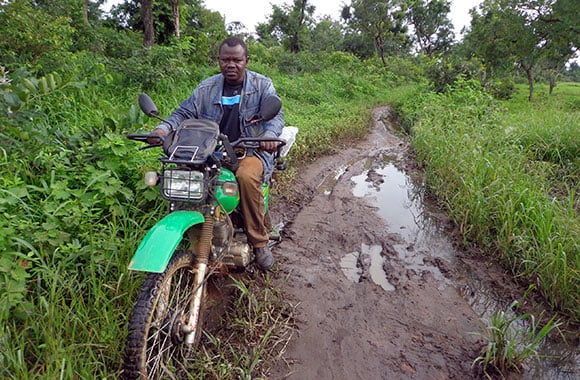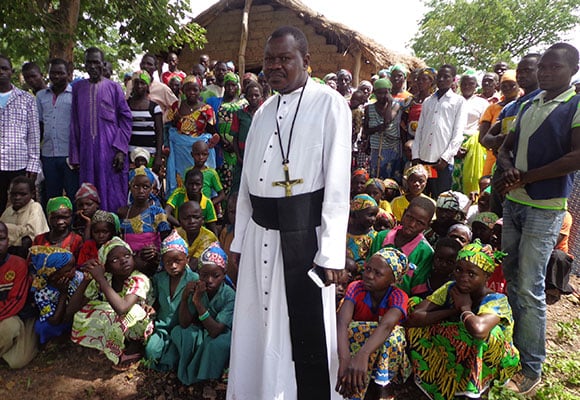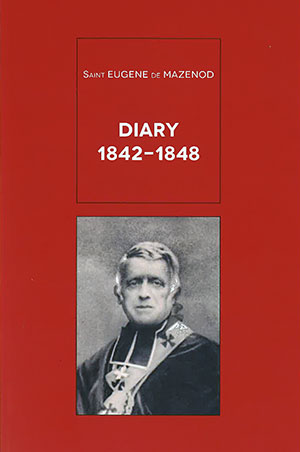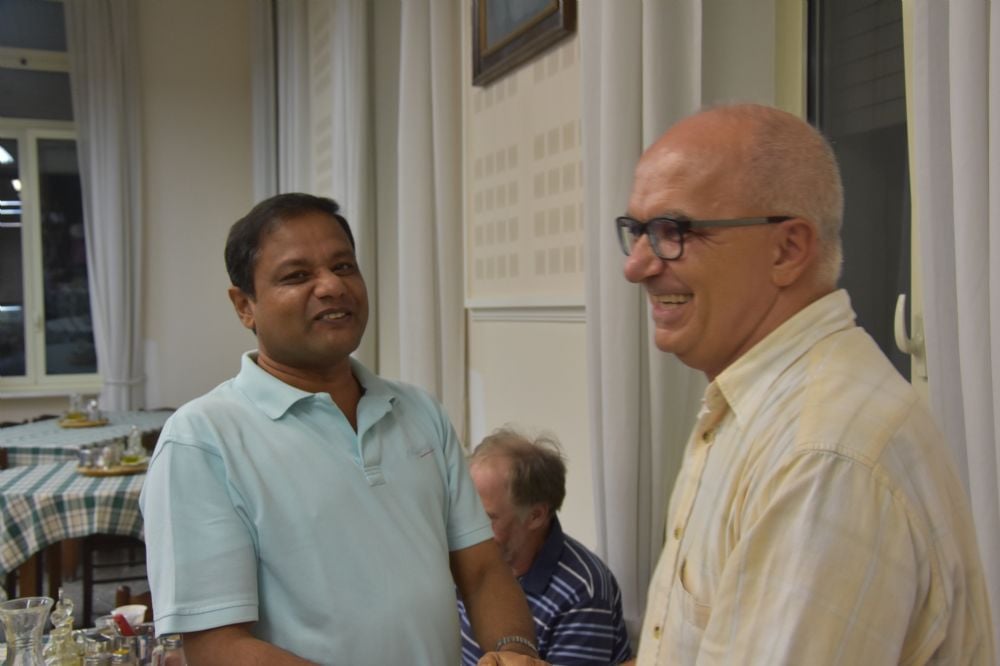Brother Ernest MBEMBA, the chairman of the JPIC committee of the Province of Cameroon, describes for us his ministry with poor war refugees.
Pikba is a village of war refugees, situated some 34 km from Poli. The village is part of our parish territory. Because of the lack of roads, access to this village is possible only by motorcycle, a situation even more complicated during the rainy season.
In early 2014, the war refugees (Cameroonians) from the Nigerian border in far North Cameroon were forced to leave their villages because of the terrorist incursions of the Islamist sect Boko Haram. Almost all their homes were burned and their property looted. Many have lost family members. They came to live in this village where the Lamido (Muslim chief), the town chieftain, gave them a small piece of land.
It is this community of displaced people that I visit once a month, to share their difficulties, to ensure a comforting presence and together to find solutions to improve their living conditions as war refugees. It is a community that lacks everything: school, a health center, arable land, drinking water. In addition, many of its members do not have official documents (birth certificates and a national identity card). I have already made several approaches to the traditional, the administrative and the municipal authorities of Lagdo (80 km from Pikba), the district on which Pikba depends for all these problems; for some of them, we are beginning to find solutions.
And now about the school. After some inquiries in Lagdo, I was able to obtain official recognition of a school that had been established in our area. It has been operating since the beginning of the school year, 4 September 2017. Thus, the 300 or so children of school age (a constantly increasing number) can finally go to school. However, we will be faced with a lack of personnel. I contacted two teachers, young parishioners who had finished at the teacher training school and have agreed to work with the director, the only teacher that headquarters had sent. But their taking over poses problems. With my support, three wooden and straw shelters that will serve classrooms have already been built.
For water, the refugees get their supply in ponds where they compete with the domestic animals. Consequently, there are many water-borne diseases. The refugees want to have wells that do not require maintenance other than drilling.
The vast majority of adults and almost all the young people and children do not have a birth certificates or a national identity card (lost or burned during the attacks on their villages). I have begun negotiations with the authorities of Lagdo to have these valuable documents prepared, but these procedures take long and require several journeys between the two cities (Poli and Lagdo). We hope that they will make good, because almost 450 refugees are in this situation.
For the land to be cultivated, I met the Lamido of the district of Gouna, the district to which Pikba is attached, to discuss with him the situation of arable land. He promised to send his collaborators to the site to increase the land area they have available. As they say: “Land to be cultivated is their chief resource; if they do not plant, neither will they eat.”
The living conditions of these refugees would improve even more if the problems mentioned above could find a decisive and lasting solution.



